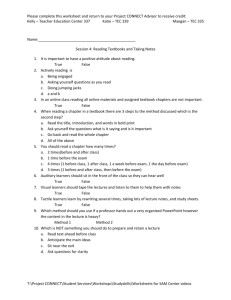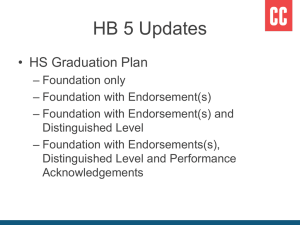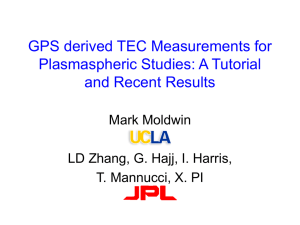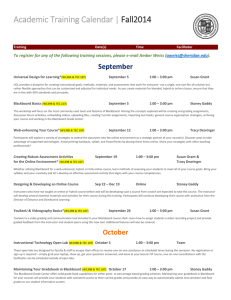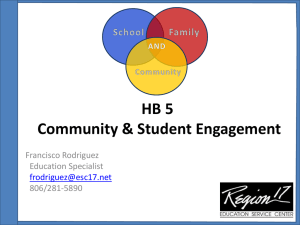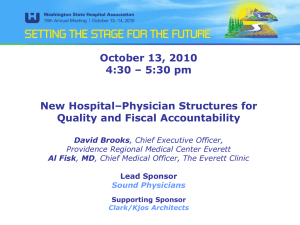View - E
advertisement
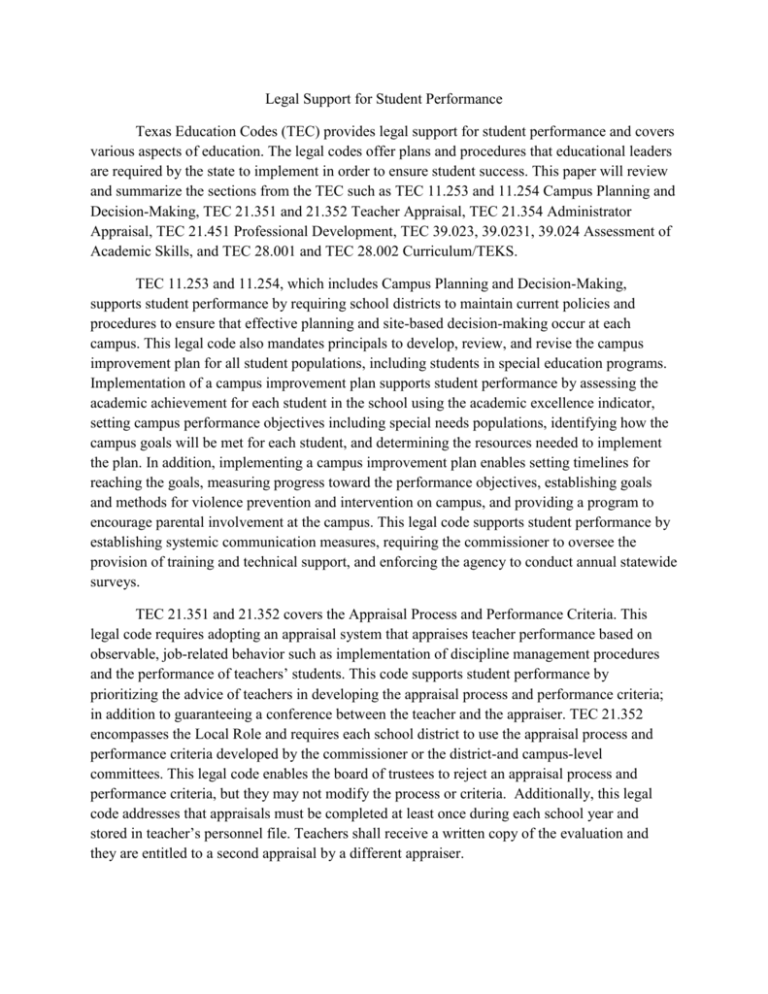
Legal Support for Student Performance Texas Education Codes (TEC) provides legal support for student performance and covers various aspects of education. The legal codes offer plans and procedures that educational leaders are required by the state to implement in order to ensure student success. This paper will review and summarize the sections from the TEC such as TEC 11.253 and 11.254 Campus Planning and Decision-Making, TEC 21.351 and 21.352 Teacher Appraisal, TEC 21.354 Administrator Appraisal, TEC 21.451 Professional Development, TEC 39.023, 39.0231, 39.024 Assessment of Academic Skills, and TEC 28.001 and TEC 28.002 Curriculum/TEKS. TEC 11.253 and 11.254, which includes Campus Planning and Decision-Making, supports student performance by requiring school districts to maintain current policies and procedures to ensure that effective planning and site-based decision-making occur at each campus. This legal code also mandates principals to develop, review, and revise the campus improvement plan for all student populations, including students in special education programs. Implementation of a campus improvement plan supports student performance by assessing the academic achievement for each student in the school using the academic excellence indicator, setting campus performance objectives including special needs populations, identifying how the campus goals will be met for each student, and determining the resources needed to implement the plan. In addition, implementing a campus improvement plan enables setting timelines for reaching the goals, measuring progress toward the performance objectives, establishing goals and methods for violence prevention and intervention on campus, and providing a program to encourage parental involvement at the campus. This legal code supports student performance by establishing systemic communication measures, requiring the commissioner to oversee the provision of training and technical support, and enforcing the agency to conduct annual statewide surveys. TEC 21.351 and 21.352 covers the Appraisal Process and Performance Criteria. This legal code requires adopting an appraisal system that appraises teacher performance based on observable, job-related behavior such as implementation of discipline management procedures and the performance of teachers’ students. This code supports student performance by prioritizing the advice of teachers in developing the appraisal process and performance criteria; in addition to guaranteeing a conference between the teacher and the appraiser. TEC 21.352 encompasses the Local Role and requires each school district to use the appraisal process and performance criteria developed by the commissioner or the district-and campus-level committees. This legal code enables the board of trustees to reject an appraisal process and performance criteria, but they may not modify the process or criteria. Additionally, this legal code addresses that appraisals must be completed at least once during each school year and stored in teacher’s personnel file. Teachers shall receive a written copy of the evaluation and they are entitled to a second appraisal by a different appraiser. TEC 21.353 contains information pertinent to Appraisal on Basis of Classroom Teaching Performance. A teacher who directs extracurricular activities, in addition to performing classroom teaching duties, shall be appraised only on the basis of classroom teaching performance and not on performance in connection with the extracurricular activities. This legal code supports student performance by specifying teachers’ roles, expectations, and responsibilities. TEC 21.354 entails the Appraisals of Administrators and this code supports student performance by appraising school administrators based on job-related performance. In this legal code, the commissioner may consider the advice of teachers and administrators in developing the appraisal process and performance criteria; however, each school district appraises each administrator while considering the performance of the principal’s campus. TEC 21.451 is the Professional Development code that supports student performance by training faculty and staff based on standards developed by the district. The staff development must be predominantly campus-based, related to achieving campus performance objectives, and approved by the campus-level committee. The staff development may include training in technology, conflict resolution, and discipline strategies; yet, staff development is designed for educators, who work primarily outside the area of special education. The staff development code supports student performance including instruction for students with disabilities and instruction as to what is permissible regarding prayer in public school. TEC 39.023 is an illustration of the Assessment of Academic Skills, which is also referred to as Adoption and Administration of Instruments. This legal code supports student performance by requiring adoption and development of an appropriate criterion-referenced assessment instrument designed to assess essential knowledge and skills of students in reading, writing, mathematics, social studies, and science. Under this legal code, TEA (Texas Education Agency) is required to develop and administer criterion-referenced assessment to each student in a special education program, who receives modified instruction determined by the student’s admission, review, and dismissal (ARD) committee. In addition, TEA must adopt a secondary exit-level assessment instrument designed to be administered to students in grade 11 to assess essential knowledge and skills in mathematics, English language arts, social studies, and science. The State Board of Education shall adopt a norm-referenced assessment to be administered to a selected sample of students in the spring. Each assessment instrument must be reliable, valid, and must meet any applicable federal requirements for measurement of student progress. The State Board of Education shall adopt rules for the administration of the assessment instruments in Spanish to students who are of limited English proficiency. This legal code supports student performance by mandating reliable, valid assessment for students and creating procedures for students who are exempt from testing. TEC 39.0231 includes Reporting of Results of Certain Assessments and this legal code supports student performance by ensuring that each assessment instrument administered is scored and that results are returned to the appropriate school district not later than 10 days after receipt of the test materials by the agency or its test contractor. TEC 39.024 is the legal code entitled Satisfactory Performance and it supports student performance by requiring the State Board of Education to determine the level of performance considered to be satisfactory on the assessment instruments. TEA shall develop study guides for the assessment instruments to assist parents, make available teacher training materials, and retain a portion of the total amount of funds allotted to finance activities and intensive programs instruction. Lastly, TEC 28.001 is the legal code referred to as Purpose and mandates all students to demonstrate the knowledge and skills necessary to read, write, compute, problem solve, think critically, apply technology, and communicate across all subject areas. Additionally, the essential knowledge and skills shall prepare and enable all students to continue learning in postsecondary educational, training, or employment settings. TEC 28.002 consists of a description of the Required Curriculum. This legal code supports student performance by requiring each school district to offer a foundation curriculum that includes English language arts, mathematics, science, and social studies, which consist of Texas, United States, and world history, government, and geography. In addition to a curriculum that includes languages other than English, health, physical education, fine arts, economics, and career and technology applications. The State Board of Education shall designate a well-balanced curriculum with direct participation from educators, parents, business representatives, and employers to identify the essential knowledge and skills of each subject. A well-balanced, flexible curriculum supports student performance by meeting student needs. Legal support for student performance grants educational stakeholders with the necessary resources to achieve success. This paper provided a review and summarization of the sections from the TEC such as TEC 11.253 and 11.254 Campus Planning and Decision-Making, TEC 21.351 and 21.352 Teacher Appraisal, TEC 21.354 Administrator Appraisal, TEC 21.451 Professional Development, TEC 39.023, 39.0231, 39.024 Assessment of Academic Skills, and TEC 28.001 and TEC 28.002 Curriculum/TEKS.

